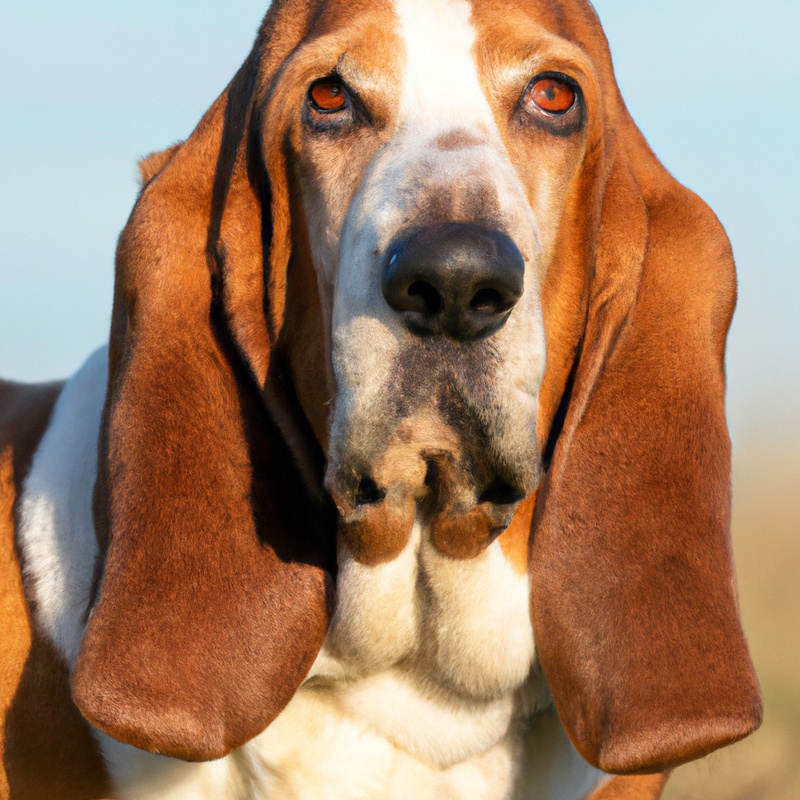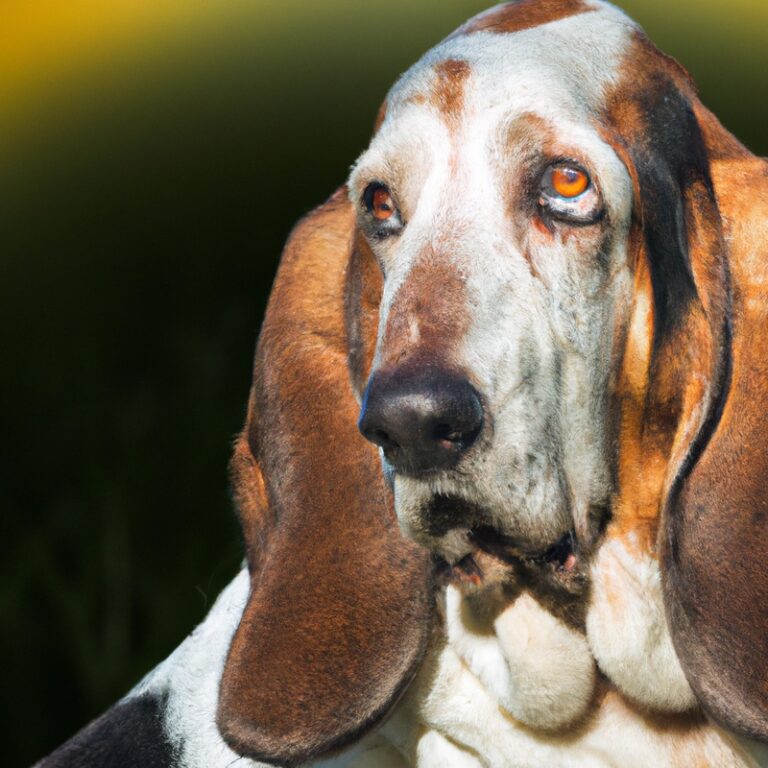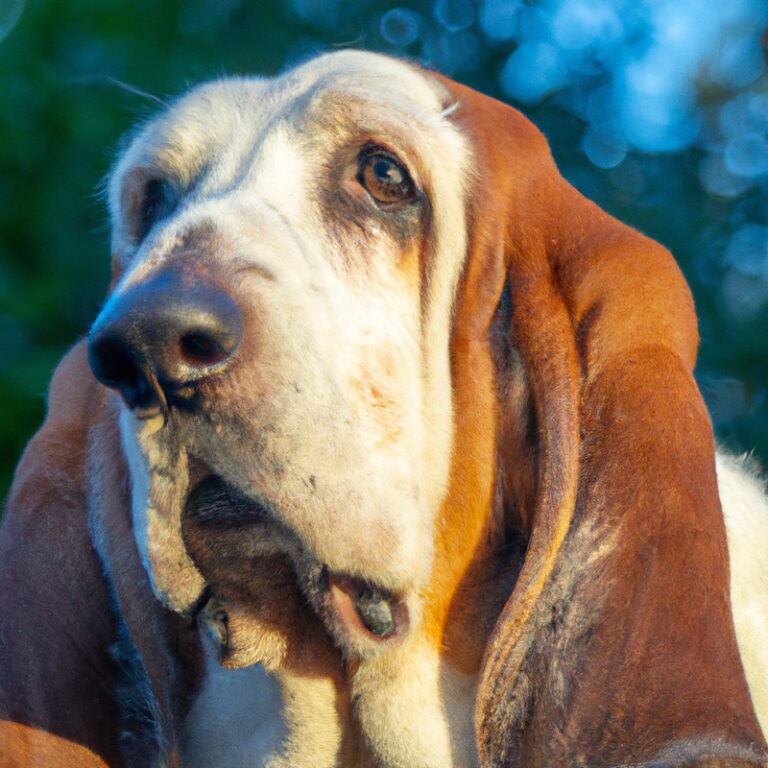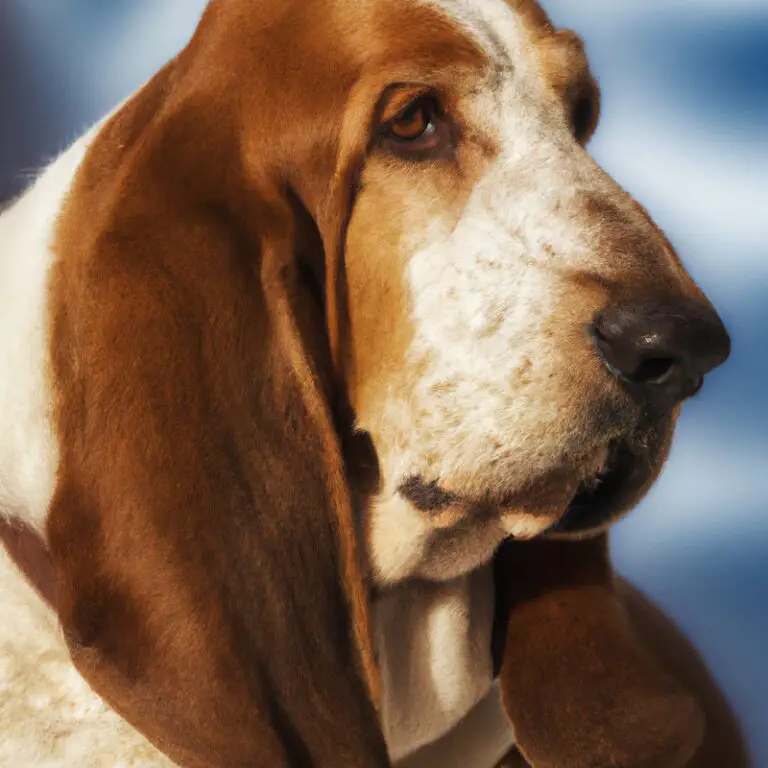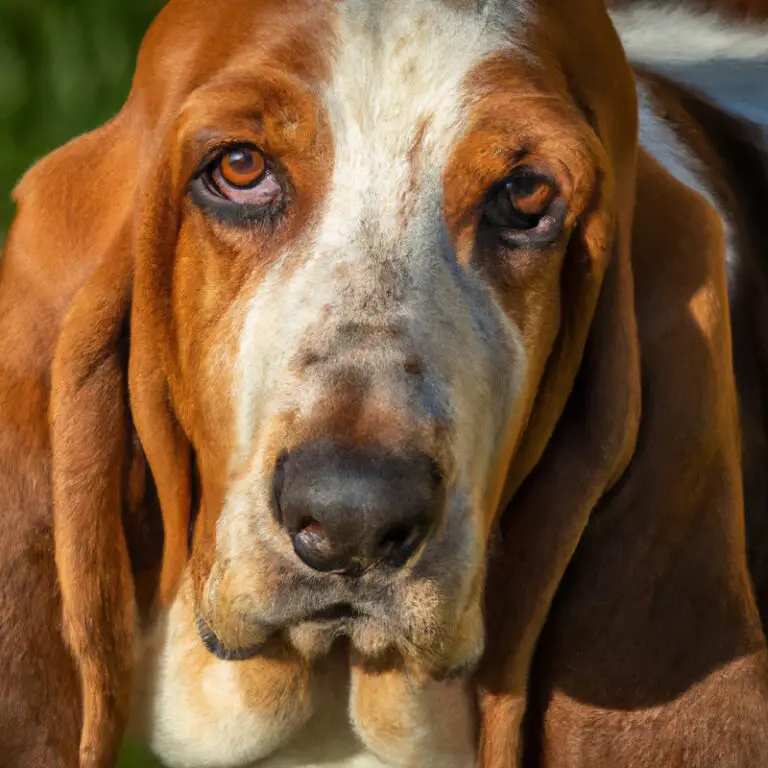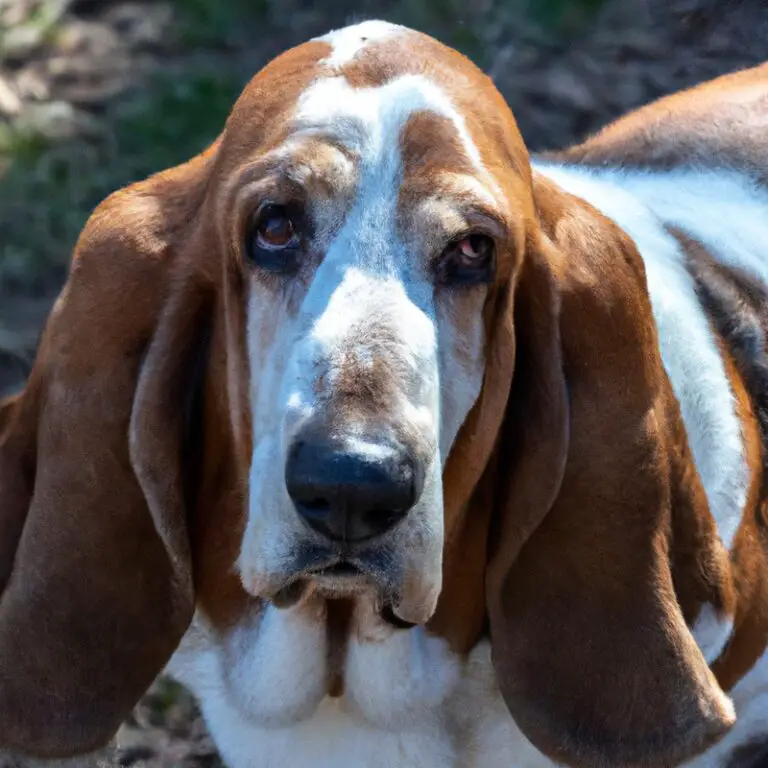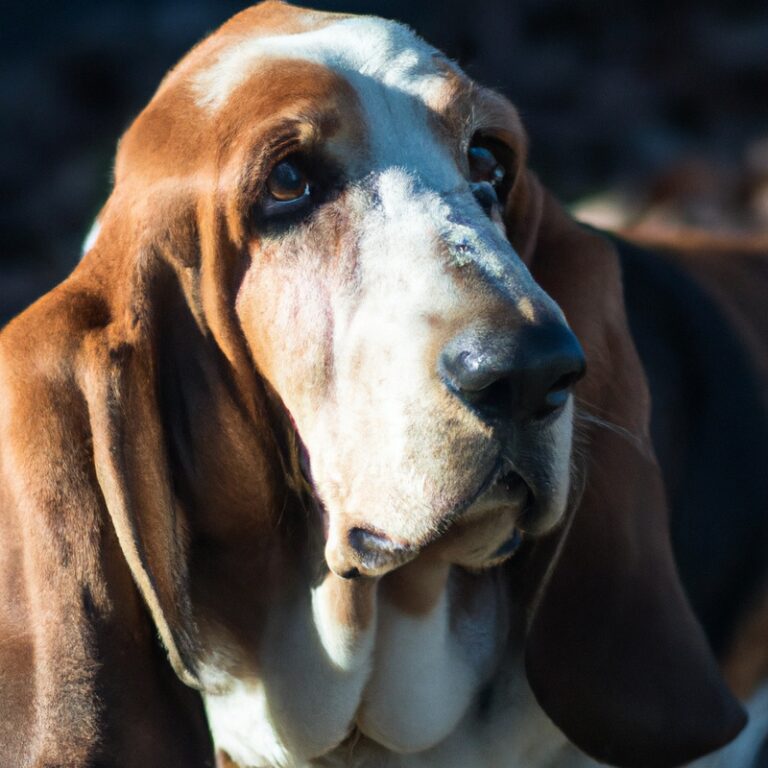Do Basset Hounds Have a Strong Instinct To Chase Small Animals?
Key Takeaways:
- Basset Hounds have a strong instinct to chase small animals due to their hunting background.
- Their powerful sense of smell and low stature contribute to their ability to track and pursue prey.
- Basset Hound owners should be cautious and provide appropriate training to manage their chasing instincts.
- It is important to socialize and supervise Basset Hounds around small animals to prevent any potential harm or accidents.
Have you ever marveled at the long, droopy ears and soulful eyes of a Basset Hound and wondered about their instincts?
Well, prepare to be intrigued, because today we’re diving into the world of Basset Hounds and their knack for chasing small animals.
As a self-proclaimed dog enthusiast and experienced pet owner, I’ve witnessed first-hand the undeniable allure these hounds possess for sniffing out, tracking, and pursuing anything that moves.
Join me as we explore the fascinating genetic history behind their hunting instincts, examine the factors that contribute to their natural prey drive, and discover effective strategies for managing and training their chasing behavior.
| Question | Answer |
|---|---|
| Do Basset Hounds have a strong instinct to chase small animals? | Yes |
Understanding Basset Hounds and Their Instincts
Overview of the Basset Hound breed
The Basset Hound is a breed known for its distinctive appearance and gentle temperament.
These dogs have long, low bodies with droopy ears and soulful eyes.
They were originally bred in France for tracking small game, which is why they have excellent scenting abilities.
Basset Hounds are generally friendly and good with children, making them popular family pets.
They are also known for their calm and laid-back nature, although they can be stubborn at times.
Bassets require moderate exercise and regular grooming to keep their coats in good condition.
Overall, they make wonderful companions for those who appreciate their unique charm.
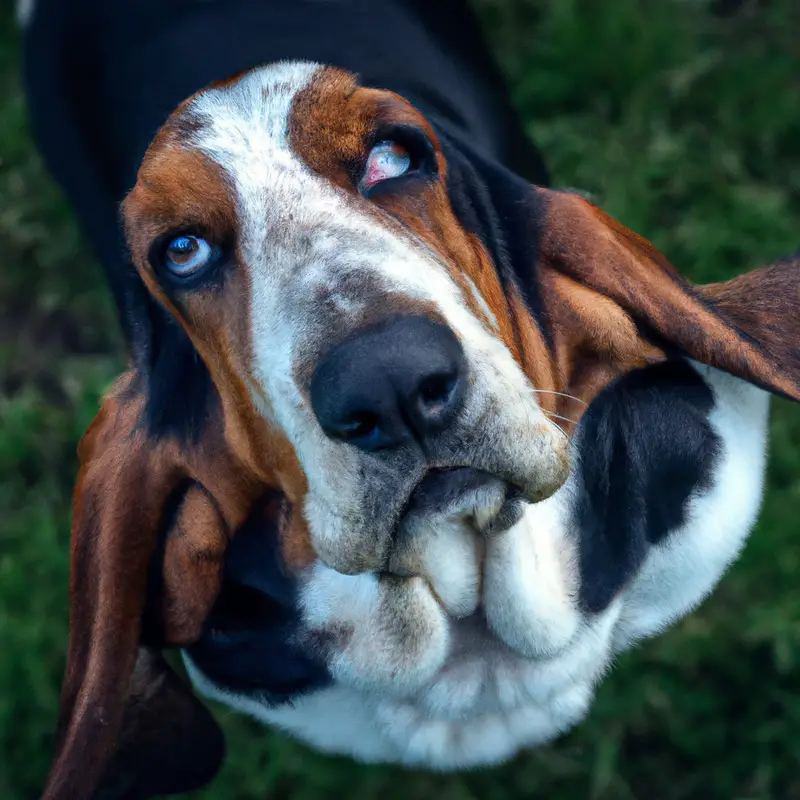
Key characteristics of Basset Hounds
Basset Hounds have several key characteristics that make them unique. Their most distinctive feature is their long, droopy ears that contribute to their excellent sense of smell.
These dogs are known for their friendly and gentle nature, making them great family pets.
Bassets are also laid-back and enjoy lounging around the house. However, they are prone to obesity and require regular exercise to stay healthy.
Bassets have a strong instinct to follow scents, and their short, stubby legs may slow them down but not dampen their determination.
Proper training and socialization are essential to manage their chasing tendencies.
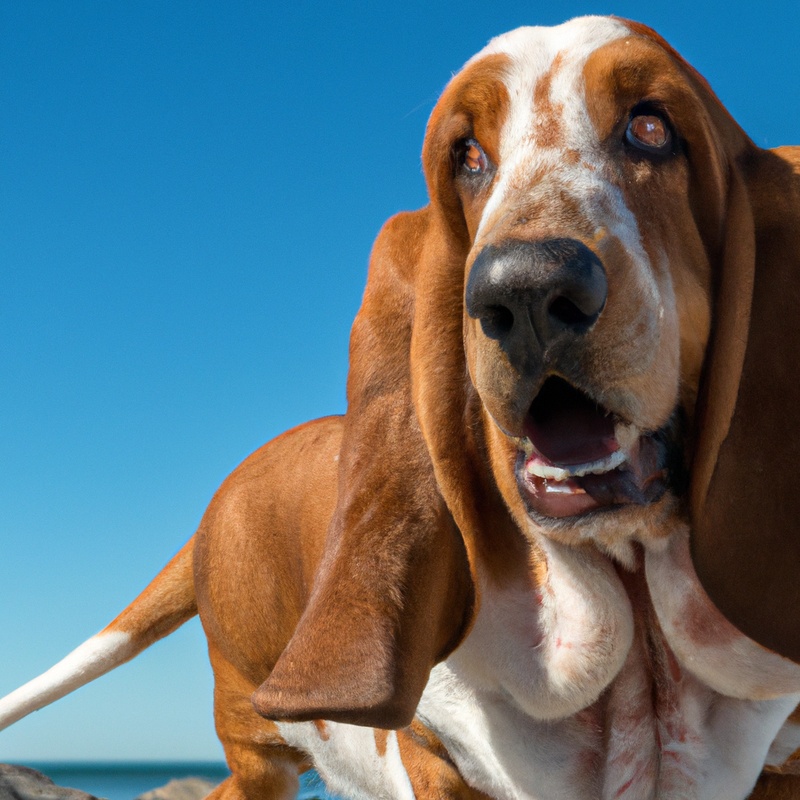
Curiosity about Basset Hound instincts
Basset Hounds have strong instincts that are rooted in their hunting history.
Their scent hound instincts make them prone to chasing behavior.
It’s natural for them to be curious about small animals and to want to pursue them.
Factors like prey drive and the intensity of their chasing instinct can influence their behavior.
It’s important to manage and train their chasing behavior through exercise, mental stimulation, and proper training techniques.
Precautions, such as using a leash and supervising outdoor activities, can help ensure their safety and the safety of small animals they encounter.
A Closer Look at Chasing Instincts
The hunting history of Basset Hounds
Basset Hounds have a rich hunting history that dates back centuries.
They were originally bred in France for the purpose of trailing small game such as rabbits and hares.
Their exceptional sense of smell and low, sturdy build made them ideal for tracking and hunting in dense underbrush.
Basset Hounds possess a strong instinct to follow scents and were prized for their ability to stay on the trail for long periods of time.
Today, while their hunting skills may not be as widely utilized, their instincts and love for the chase still remain a prominent aspect of their breed.
The influence of scent hound instincts
Scent hound instincts play a significant role in shaping the behavior of Basset Hounds.
These instincts are deeply ingrained due to their heritage as hunting dogs.
Basset Hounds have a keen sense of smell, which drives their desire to track and follow scents.
This instinct makes them highly skilled at detecting and pursuing prey, including small animals.
It’s essential to understand and manage these instincts to ensure the safety of both the Basset Hound and other small animals they may encounter.
Why Basset Hounds are prone to chasing behavior
Basset Hounds are prone to chasing behavior due to their hunting history and strong scent hound instincts.
They were originally bred for tracking small game, so their natural prey drive is deeply ingrained.
Additionally, their low stature and keen sense of smell make them skilled at picking up scents and following them, which can lead them to chase after small animals.
It’s important to understand and manage this instinctual behavior to ensure the safety of both your Basset Hound and the potential prey.
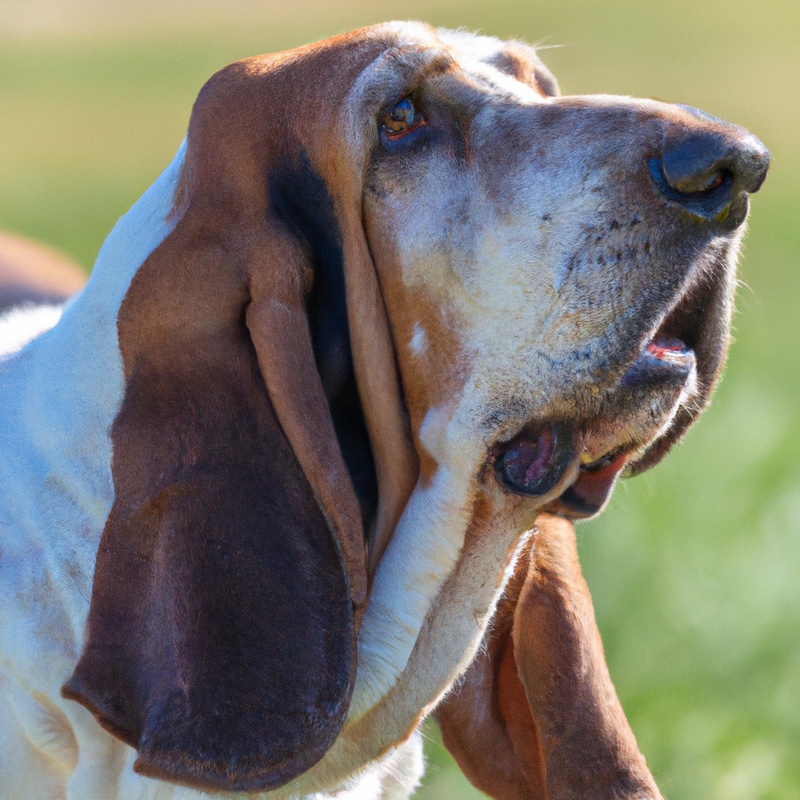
Chasing and Small Animals
The natural prey drive in Basset Hounds
Basset Hounds naturally have a strong prey drive.
It’s an inherited instinct from their hunting ancestors.
Their keen sense of smell and tracking ability make them excellent hunters.
When they catch a scent or spot a small animal, their instincts kick in, and they may chase after it.
This behavior is not something they can easily control, as it is ingrained in their breed.
It’s important for owners to be aware of this instinct and take necessary precautions when their Basset Hound is around small animals.
Their natural prey drive is a trait that has been bred into them over generations, so it’s essential to understand and manage it appropriately.
Basset Hounds’ tendency to chase small animals
Basset Hounds have a strong instinct to chase small animals. It’s a natural behavior for them, rooted in their hunting history and scent hound instincts.
The combination of their low-slung bodies and excellent sense of smell makes them particularly prone to chasing small creatures like squirrels or rabbits.
However, the intensity of this instinct can vary from one Basset Hound to another. Factors like training, socialization, and individual temperament can influence the degree to which a Basset Hound exhibits this chasing behavior.
Factors influencing the intensity of their chasing instinct
The intensity of a Basset Hound’s chasing instinct can be influenced by several factors.
One factor is their individual personality and temperament.
Some Basset Hounds may have a stronger prey drive than others.
Another factor is their level of socialization and exposure to different environments.
Basset Hounds that have been well-socialized from a young age may have a lower intensity of chasing instinct.
Additionally, training and reinforcement techniques can play a role in managing and modifying their chasing behavior.
Regular exercise and mental stimulation can also help reduce the intensity of their chasing instinct.
Managing and Training Chasing Behavior
Exercise and mental stimulation to minimize chasing
Exercise and mental stimulation are key in minimizing chasing behavior in Basset Hounds.
Giving them regular opportunities to burn off energy through physical activities like walks, runs, or playtime can help satisfy their instinctual need to chase.
Mental stimulation, such as puzzle toys or training sessions, can also tire them out and redirect their focus away from small animals.
Creating a routine that includes both exercise and mental stimulation will keep your Basset Hound engaged and content, helping to minimize their chasing instincts.
Training techniques for curbing chasing instincts
Curbing a Basset Hound’s chasing instinct requires consistent training and patience.
Here are some effective techniques:
- Recall training: Teach your Basset Hound a reliable recall command, such as “come” or “here.” Use positive reinforcement, rewarding them with treats or praise when they respond promptly.
- Distraction and redirection: When your Basset Hound shows an interest in chasing, divert their attention to a more appropriate activity, like playing with a toy or engaging in a training exercise.
- Leash training: Keep your Basset Hound on a leash in areas where they may encounter small animals. Gradually expose them to tempting distractions, rewarding calm behavior and redirecting their focus.
- Desensitization: Gradually expose your Basset Hound to small animals in controlled situations. Start from a distance and reward them for remaining calm. Increase the proximity over time, rewarding calm behavior throughout the process.
- Positive reinforcement: Consistently reward your Basset Hound for ignoring or exhibiting calm behavior around small animals. This reinforces the idea that good behavior is more rewarding than chasing.
Remember, training is an ongoing process.
Be patient and consistent, and seek professional guidance if needed.
Potential challenges and solutions in managing chasing behavior
Managing a Basset Hound’s chasing behavior can present some challenges, but there are solutions available.
One challenge is their strong instinct to chase small animals, which can lead to potential conflicts and safety concerns.
To address this, using a leash and securely fenced areas can prevent them from chasing animals.
Consistent training and positive reinforcement techniques can also help redirect their focus and deter the chasing behavior.
Providing them with plenty of exercise and mental stimulation can minimize their need to chase.
Precautions and Safety Measures
Importance of leash and fenced areas for Basset Hounds
Leashes and fenced areas are essential for ensuring the safety of Basset Hounds.
These measures prevent them from wandering off or getting into dangerous situations.
Bassets have a strong instinct to follow scents and chase small animals, which can lead them to run off unexpectedly.
By using a leash, you can have better control over their movements and prevent them from chasing after small animals.
Fenced areas provide a secure and contained space where Basset Hounds can safely explore and play without the risk of running away.
Supervision and precautions during outdoor activities
During outdoor activities with your Basset Hound, it’s essential to provide proper supervision and take necessary precautions. Always keep a close eye on your dog to ensure their safety and control any chasing instincts they might have.
Leashing your Basset Hound and using a secure, fenced area can prevent them from wandering off or chasing small animals.
Additionally, consider using a long leash to give them some freedom while still maintaining control. When encountering small animals, maintain a distance and redirect their attention to prevent chasing.
Tips for handling encounters with small animals
When encountering small animals with your Basset Hound, it’s important to prioritize safety for both your dog and the other animal. Here are some tips to handle such situations:
- Leash your Basset Hound: Keep your dog on a leash during walks or outdoor activities to prevent them from chasing and potentially harming small animals.
- Stay calm and composed: If your Basset Hound spots a small animal and begins to show interest, avoid shouting or yanking the leash. Stay calm to avoid agitating your dog.
- Distract and redirect: Carry some treats or toys during walks to redirect your dog’s attention away from small animals. Engage them in interactive play or offer treats to divert their focus.
- Practice obedience commands: Train your Basset Hound to respond to obedience commands like “leave it” or “come.” These commands can be useful to redirect their attention away from small animals.
- Seek professional help if needed: If your Basset Hound’s chasing behavior becomes a significant problem, consult a professional dog trainer or behaviorist for guidance and specialized training techniques.
Remember, every dog is different, and it may take time and consistency to manage your Basset Hound’s chasing instincts. Patience and positive reinforcement are key in addressing this behavior.
Final Verdict
It is clear that Basset Hounds do possess a strong instinct to chase small animals, thanks to their hunting heritage and scent hound instincts.
This behavior is deeply ingrained in their DNA and can be difficult to suppress.
However, with proper management, training, and precautions, it is possible to minimize the intensity of their chasing instinct and keep them and other animals safe.
Regular exercise, mental stimulation, and positive reinforcement training techniques are key in curbing their chasing behavior.
Remember to always prioritize the safety of your Basset Hound and other animals by using leashes and fenced areas, supervising outdoor activities, and handling encounters with caution.

